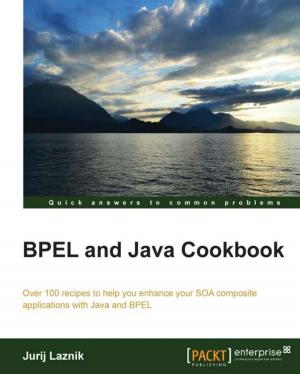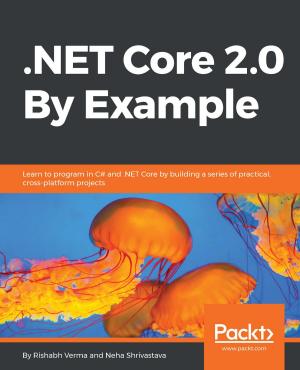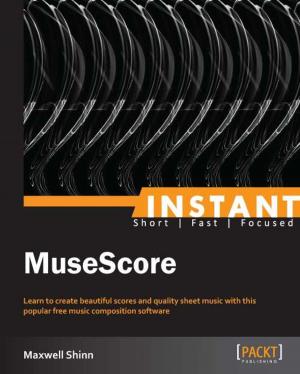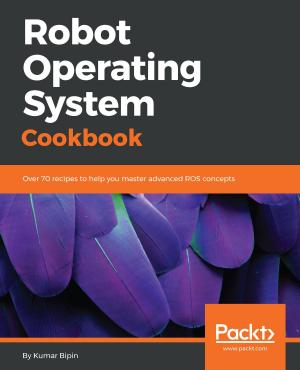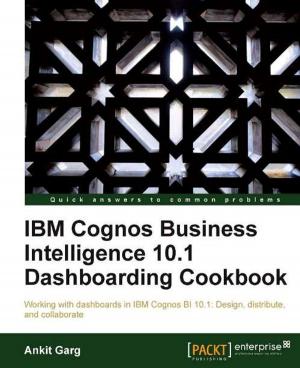Rust Programming By Example
Enter the world of Rust by building engaging, concurrent, reactive, and robust applications
Nonfiction, Computers, Internet, Web Development, Java, Programming, Programming Languages| Author: | Guillaume Gomez, Antoni Boucher | ISBN: | 9781788470308 |
| Publisher: | Packt Publishing | Publication: | January 11, 2018 |
| Imprint: | Packt Publishing | Language: | English |
| Author: | Guillaume Gomez, Antoni Boucher |
| ISBN: | 9781788470308 |
| Publisher: | Packt Publishing |
| Publication: | January 11, 2018 |
| Imprint: | Packt Publishing |
| Language: | English |
Discover the world of Rust programming through real-world examples
Key Features
- Implement various features of Rust to build blazingly fast applications
- Learn to build GUI applications using Gtk-rs
- Explore the multi-threading aspect of Rust to tackle problems in concurrency and in distributed environments
Book Description
Rust is an open source, safe, concurrent, practical language created by Mozilla. It runs blazingly fast, prevents segfaults, and guarantees safety. This book gets you started with essential software development by guiding you through the different aspects of Rust programming. With this approach, you can bridge the gap between learning and implementing immediately.
Beginning with an introduction to Rust, you’ll learn the basic aspects such as its syntax, data types, functions, generics, control flows, and more. After this, you’ll jump straight into building your first project, a Tetris game. Next you’ll build a graphical music player and work with fast, reliable networking software using Tokio, the scalable and productive asynchronous IO Rust library.
Over the course of this book, you’ll explore various features of Rust Programming including its SDL features, event loop, File I/O, and the famous GTK+ widget toolkit. Through these projects, you’ll see how well Rust performs in terms of concurrency—including parallelism, reliability, improved performance, generics, macros, and thread safety. We’ll also cover some asynchronous and reactive programming aspects of Rust.
By the end of the book, you’ll be comfortable building various real-world applications in Rust.
What you will learn
- Compile and run the Rust projects using the Cargo-Rust Package manager
- Use Rust-SDL features such as the event loop, windows, infinite loops, pattern matching, and more
- Create a graphical interface using Gtk-rs and Rust-SDL
- Incorporate concurrency mechanism and multi-threading along with thread safety and locks
- Implement the FTP protocol using an Asynchronous I/O stack with the Tokio library
Who this book is for
This book is for software developers interested in system level and application programming who are looking for a quick entry into using Rust and understanding the core features of the Rust Programming. It’s assumed that you have a basic understanding of Java, C#, Ruby, Python, or JavaScript.
Discover the world of Rust programming through real-world examples
Key Features
- Implement various features of Rust to build blazingly fast applications
- Learn to build GUI applications using Gtk-rs
- Explore the multi-threading aspect of Rust to tackle problems in concurrency and in distributed environments
Book Description
Rust is an open source, safe, concurrent, practical language created by Mozilla. It runs blazingly fast, prevents segfaults, and guarantees safety. This book gets you started with essential software development by guiding you through the different aspects of Rust programming. With this approach, you can bridge the gap between learning and implementing immediately.
Beginning with an introduction to Rust, you’ll learn the basic aspects such as its syntax, data types, functions, generics, control flows, and more. After this, you’ll jump straight into building your first project, a Tetris game. Next you’ll build a graphical music player and work with fast, reliable networking software using Tokio, the scalable and productive asynchronous IO Rust library.
Over the course of this book, you’ll explore various features of Rust Programming including its SDL features, event loop, File I/O, and the famous GTK+ widget toolkit. Through these projects, you’ll see how well Rust performs in terms of concurrency—including parallelism, reliability, improved performance, generics, macros, and thread safety. We’ll also cover some asynchronous and reactive programming aspects of Rust.
By the end of the book, you’ll be comfortable building various real-world applications in Rust.
What you will learn
- Compile and run the Rust projects using the Cargo-Rust Package manager
- Use Rust-SDL features such as the event loop, windows, infinite loops, pattern matching, and more
- Create a graphical interface using Gtk-rs and Rust-SDL
- Incorporate concurrency mechanism and multi-threading along with thread safety and locks
- Implement the FTP protocol using an Asynchronous I/O stack with the Tokio library
Who this book is for
This book is for software developers interested in system level and application programming who are looking for a quick entry into using Rust and understanding the core features of the Rust Programming. It’s assumed that you have a basic understanding of Java, C#, Ruby, Python, or JavaScript.
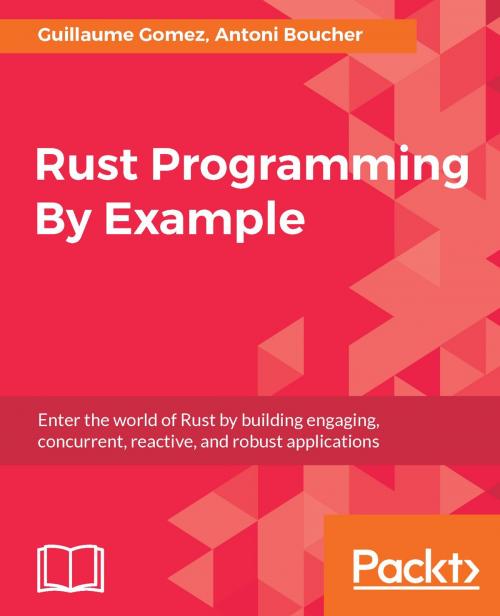
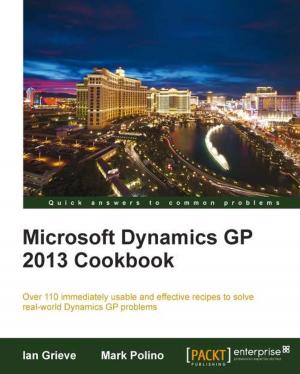

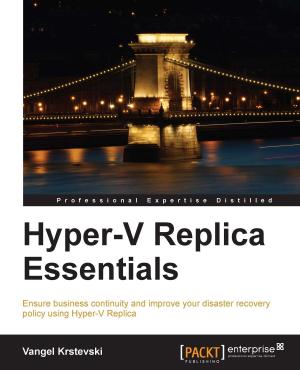
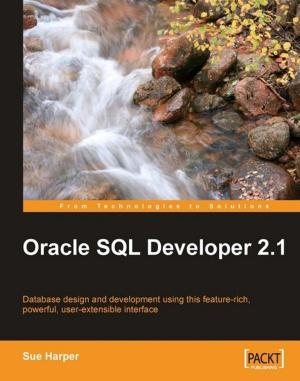
![Cover of the book Instant Wireshark Starter [Instant] by Guillaume Gomez, Antoni Boucher](https://www.kuoky.com/images/2013/january/300x300/9781849695657-S1uP_300x.jpg)


